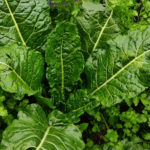
Life as you knew it has probably just changed
Let’s get real here. COVID-19 has us distanced from each other, protecting our own health, and worried for high-risk friends and family. COVID-19-driven shortages are jolting us into panic mode. The fabric of our lives is changing.
Meanwhile COVID-19 self-isolation means we aren’t patronizing our usual restaurants, shops, gathering places, and mom-and-pop businesses. Our beloved nonprofits will suffer. And the broader economy (that had been slowly falling apart for some time) now looks like it’s crashing. Together this means recovery from March 2020 will be a very long process. Life as you once knew it has changed — perhaps permanently.
Here are some things you can do.
This isn’t a fluffy list. It’s what I consider to be proactive, realistic, perhaps “conservative” (although that word now carries so much baggage). I don’t think these suggestions are wild or radical. And if you do them and nothing bad happens, your life is still that much richer.
- Prep your family for the short term. See my previous post about right-now protection from COVID-19 and preparation for life under self-isolation or quarantine. If you read it before, I’ve updated it several times.
- Prep your family for long-term recovery. Milkwood Permaculture has a rational post. Also turn to Rob Hopkins’ Transition Companion for more ideas. I’ll be writing more in this vein as this crisis unfolds.
- Acknowledge reality. You will grieve the old style of life you have lost. Become familiar with Kubler-Ross stages of grief. Many of us are in shock, denial, and anger right now. It’s an emotional roadmap: Understand the phases that lie ahead.
- Prep for the worst case, too. Although statistics are still being generated about who gets hit hardest, the truth is we don’t really know. Put your affairs in order and encourage family and friends to do so too. Adequate legal paperwork is compassion for your next of kin. At a bare minimum, fill out the California Statutory Will. (pdf)
- Plant your food garden now. Gardening is fresh air, sunshine, and low-exposure exercise. March and April are a great time to plant in Southern California. (Build your soil first!) (Here’s what to plant when) Gardening is stress relief, and when the plants grow they become food security. Because we’re probably going to need all the help we can get.
- Phone people. Self-isolation can be isolating, people will get depressed. Phone people, every day. Do video calls if you know that technology. Help calm people’s fears, help guide them toward positive, realistic action. But above all, tell people you care about them. Say it, even if you don’t usually. Call aging parents, great-aunts, friends and relatives who are hunkered down in other geographies.
- Consider the life we wish for. I haven’t yet read Rob Hopkins’ From What Is To What If: Unleashing the power of imagination to create the future we want. But it’s now on my reading list. (Want to join me and discuss it virtually?) As we rebuild, as we reassemble society post-COVID-19, let’s build the society we dream of living in.
- If you must buy stuff, buy from small local businesses to support the livelihoods of local families (rather than Jeff Bezos). Buy your food as local as possible to support food production near where people live. Your buying dollars are a POWERFUL vote in a recession — vote for the world you wish to see emerging like a phoenix from the COVID-19 flames.


